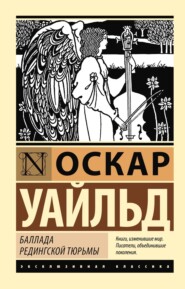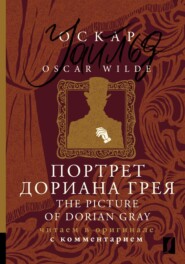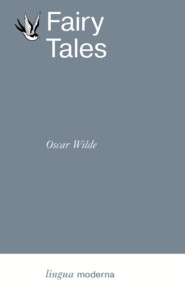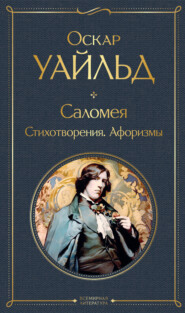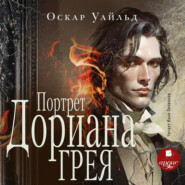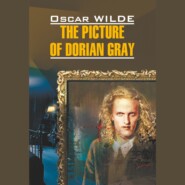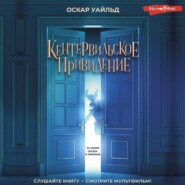По всем вопросам обращайтесь на: info@litportal.ru
(©) 2003-2024.
✖
Miscellaneous Aphorisms; The Soul of Man
Настройки чтения
Размер шрифта
Высота строк
Поля
Women are like minors, they live upon their expectations.
Twisted minds are as natural to some people as twisted bodies.
It is the very passions about whose origin we deceive ourselves that tyrannise most strongly over us. Our weakest motives are those of whose nature we are conscious. It often happens that when we think we are experimenting on others we are really experimenting on ourselves.
Whenever a man does a thoroughly stupid thing it is always from the noblest motives.
I thought I had no heart. I find I have, and a heart doesn't suit me. Somehow it doesn't go with modern dress. It makes one look old, and it spoils one's career at critical moments.
I don't play accurately – anyone can play accurately – but I play with wonderful expression. As far as the piano is concerned sentiment is my forte. I keep science for life.
I delight in men over seventy. They always offer one the devotion of a lifetime.
Everybody who is incapable of learning has taken to teaching – that is really what our enthusiasm for education has come to.
Nature hates mind.
From the point of view of form the type of all the arts is the art of the musician. From the point of view of feeling the actor's craft is the type.
Where we differ from each other is purely in accidentals – in dress, manner, tone of voice, religious opinions, personal appearance, tricks of habit, and the like.
The more we study art the less we care for Nature. What art really reveals to us is Nature's lack of design, her curious crudities, her extraordinary monotony, her absolutely unfinished condition… It is fortunate for us, however, that nature is so imperfect, as otherwise we should have had no art at all. Art is our spirited protest, our gallant attempt to teach Nature her proper place. As for the infinite variety of nature, that is a pure myth. It is not to be found in Nature herself. It resides in the imagination or fancy or cultivated blindness of the man who looks at her.
Facts are not merely finding a footing-place in history but they are usurping the domain of fancy and have invaded the kingdom of romance. Their chilling touch is over everything. They are vulgarising mankind.
Ordinary people wait till life discloses to them its secrets, but to the few, to the elect, the mysteries of life are revealed before the veil is drawn away. Sometimes this is the effect of art, and chiefly of the art of literature which deals immediately with the passions and the intellect. But now and then a complex personality takes the place and assumes the office of art, is, indeed, in its way a real work of art, Life having its elaborate masterpieces just as poetry has, or sculpture, or painting.
Thinking is the most unhealthy thing in the world, and people die of it just as they die of any other disease.
A cigarette is the perfect type of a perfect pleasure. It is exquisite and it leaves one unsatisfied.
The aim of the liar is simply to charm, to delight, to give pleasure. He is the very basis of civilised society.
It is quite a mistake to believe, as many people do, that the mind shows itself in the face. Vice may sometimes write itself in lines and changes of contour, but that is all. Our faces are really masks given to us to conceal our minds with.
What on earth should we men do going about with purity and innocence? A carefully thought-out buttonhole is much more effective.
The only difference between a caprice and a lifelong passion is that the caprice lasts a little longer.
People say sometimes that beauty is only superficial. That may be so, but at least it is not so superficial as thought is.
It is the spectator and not life that art really mirrors.
Nowadays people know the price of everything and the value of nothing.
Conscience and cowardice are really the same things. Conscience is the trade name of the firm – that is all.
In every sphere of life form is the beginning of things. The rhythmic, harmonious gestures of dancing convey, Plato tells us, both rhythm and harmony into the mind. Forms are the food of faith, cried Newman, in one of those great moments of sincerity that make us admire and know the man. He was right, though he may not have known how terribly right he was. The creeds are believed not because they are rational but because they are repeated. Yes; form is everything. It is the secret of life. Find expression for a sorrow and it will become dear to you. Find expression for a joy and you intensify its ecstasy. Do you wish to love? Use love's litany and the words will create the yearning from which the world fancies that they spring. Have you a grief that corrodes your heart? Learn its utterance from Prince Hamlet and Queen Constance and you will find that mere expression is a mode of consolation and that form, which is the birth of passion, is also the death of pain. And so, to return to the sphere of art, it is form that creates not merely the critical temperament but also the æsthetic instinct that reveals to one all things under the condition of beauty. Start with the worship of form and there is no secret in art that will not be revealed to you.
It is only the intellectually lost who ever argue.
Nowadays most people die of a sort of creeping common-sense, and discover when it is too late that the only things one never regrets are one's mistakes.
Lady Henry Wotton was a curious woman, whose dresses always looked as if they had been designed in a rage and put on in a tempest. She was usually in love with somebody, and, as her passion was never returned, she had kept all her illusions. She tried to look picturesque but only succeeded in being untidy.
Those who go beneath the surface do so at their peril.
With an evening coat and a white tie anybody, even a stockbroker, can gain a reputation for being civilised.
There is nothing so interesting as telling a good man or woman how bad one has been. It is intellectually fascinating. One of the greatest pleasures of having been wicked is that one has so much to say to the good.
Laws are made in order that people in authority may not remember them, just as marriages are made in order that the divorce court may not play about idly.
To get back one's youth one has merely to repeat one's follies.
Never marry a woman with straw-coloured hair. They are so sentimental.
The reason we all like to think so well of others is that we are all afraid for ourselves. The basis of optimism is sheer terror. We think that we are generous because we credit our neighbours with the possession of those virtues that are likely to be a benefit to us. We praise the banker that we may overdraw our account, and find good qualities in the high-wayman in the hope that he may spare our pockets. I have the greatest contempt for optimism.
Art begins with abstract decoration, with purely imaginative and pleasureable work dealing with what is unreal and non-existent. This is the first stage. Then life becomes fascinated with this new wonder, and asks to be admitted into the charmed circle. Art takes life as part of her rough material, recreates it and refashions it in fresh form; is absolutely indifferent to facts; invents, imagines, dreams, and keeps between herself and reality the impenetrable barrier of beautiful style, of decorative or ideal treatment. The third stage is when Life gets the upper hand and drives Art out into the wilderness. This is the true decadence, and it is from this that we are now suffering.
Good intentions have been the ruin of the world. The only people who have achieved anything have been those who have had no intentions at all.
I never take any notice of what common people say, and I never interfere with what charming people do.
You know I am not a champion of marriage. The real drawback to marriage is that it makes one unselfish, and unselfish people are colourless – they lack individuality. Still there are certain temperaments that marriage makes more complex. They retain their egotism, and add to it many other egos. They are forced to have more than one life. They become more highly organised, and to be highly organised is, I should fancy, the object of man's existence. Besides, every experience is of value, and whatever one may say against marriage it is certainly an experience.
Those who read the symbol do so at their peril.
I never talk during music – at least not during good music. If anyone hears bad music it is one's duty to drown it in conversation.
When critics disagree the artist is in accord with himself.
Faith is the most plural thing I know. We are all supposed to believe in the same thing in different ways. It is like eating out of the same dish with different coloured spoons.
Experience is of no ethical value. It is merely the name men give to their mistakes. Moralists have, as a rule, regarded it as a mode of warning, have claimed for it a certain ethical efficacy in the formation of character, have praised it as something that teaches us what to follow and shows us what to avoid. But there is no motive power in experience. It is as little of an active cause as conscience itself. All that it really demonstrates is that our future will be the same as our past and that the sin we have done once, and with loathing, we shall do many times, and with joy.
Sensations are the details that build up the stories of our lives.
No artist has ethical sympathies. An ethical sympathy in an artist is an unpardonable mannerism of style.
She looks like an 'edition de luxe' of a wicked French novel meant specially for the English market.
I never knew what terror was before; I know it now. It is as if a hand of ice were laid upon one's heart. It is as if one's heart were beating itself to death in some empty hollow.
We can forgive a man for making a useful thing as long as he does not admire it. The only excuse for making a useless thing is that one admires it intensely.
No artist desires to prove anything. Even things that are true can be proved.






